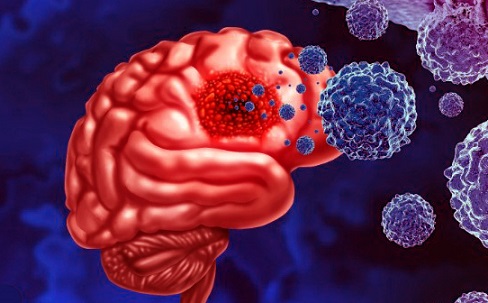Nikhil Prasad Fact checked by:Thailand Medical News Team Nov 21, 2024 5 months, 5 days, 7 hours, 16 minutes ago
Medical News: While the Omicron variant of SARS-CoV-2 has been celebrated for its milder respiratory effects compared to earlier strains, new evidence warns against complacency. A groundbreaking study conducted by researchers from J. Gromkowski Specialist Regional Hospital and Wroclaw Medical University in Poland has revealed that Omicron subvariants pose a significant neurological threat. The findings highlight the variant’s capacity to trigger a broad spectrum of neurological issues, some of which are life-threatening.
 Study Reveals Neurological Dangers of ‘Mild’ Omicron Subvariants
Study Reveals Neurological Dangers of ‘Mild’ Omicron Subvariants
This
Medical News report explores the detailed findings of this study, underscoring the need for vigilance as the pandemic continues to evolve.
Study Overview: Scope, Participants, and Methods
The researchers examined data from 426 adults hospitalized with COVID-19 at J. Gromkowski Specialist Regional Hospital between January 2022 and December 2023. Patients were divided into three groups corresponding to the dominant Omicron subvariants during three specific timeframes:
-Period 1 (January–June 2022): BA.1 and BA.2 dominated.
-Period 2 (July 2022–February 2023): BA.5, BQ.1, and XBB emerged.
-Period 3 (March–December 2023): XBB.1.5, CH.1.1, and BA.2.86 gained prominence.
Data included patient demographics, vaccination status, comorbidities, and neurological symptoms. Neurological manifestations were categorized into symptoms (e.g., headache, dizziness) and complications (e.g., strokes, encephalopathy). Statistical analysis was used to uncover patterns and correlations across the subvariant waves.
Key Findings: Neurological Symptoms on the Rise
The study revealed that neurological symptoms were reported in 55.4% of hospitalized patients, with an increasing trend as new subvariants emerged.
Common Neurological Symptoms
-Delirium: The most frequent neurological issue, affecting 19.01% of patients. Delirium was strongly associated with extended hospital stays and higher mortality.
-Headache and Myalgia: These symptoms, though milder, were prevalent in 14.32% and 10.56% of patients, respectively. Interestingly, patients reporting these symptoms experienced shorter hospital stays.
-Dizziness: Present in 9.62% of cases, dizziness added to the growing list of neurological concerns.
Severe Neurological Complications
-Cerebrovascular Events:
Transient ischemic attacks (TIAs) were observed in 2.35% of patients, with a significant increase in later subvariant periods.
Ischemic strokes occurred in 2.58% of cases and were linked to the highest mortality rates among neurological complications.
&nb
sp;
-Encephalopathy: A notable rise in cases was observed, especially during the dominance of newer subvariants.
-Seizures and Ataxia: Although rarer, these symptoms highlighted the broad spectrum of neurological effects.
Neurological complications were more common in patients from the later waves, particularly during the third period, where nearly 67.82% of patients experienced neurological issues compared to 47.78% in the first wave.
Vulnerable Populations: Older Adults and Pre-existing Conditions
The study underscored that older adults were disproportionately affected. The median age of patients increased across the three periods, from 71 during the first wave to 78 in the third. Comorbidities such as cardiovascular diseases, past strokes, dementia, and chronic kidney disease further heightened the risk of severe neurological manifestations.
Patients with these conditions faced not only longer hospital stays but also higher rates of intensive care unit (ICU) admission and mortality. The findings confirm that the elderly and those with pre-existing health issues remain the most vulnerable to the severe effects of COVID-19.
The Role of Vaccination
The study also acknowledged the limitations of vaccine efficacy against Omicron subvariants, given their ability to evade immune responses. The study found that vaccination does not eliminate the neurological impact of Omicron infections entirely.
Why Does Omicron Cause Neurological Issues?
The study’s findings align with existing research showing SARS-CoV-2’s ability to invade the central nervous system (CNS). The virus can penetrate the blood-brain barrier, either through the bloodstream or by traveling along peripheral nerves such as the olfactory nerve. Once in the brain, it can:
-Induce inflammation, damaging neurons.
-Disrupt signaling pathways.
-Trigger conditions like encephalopathy and strokes.
Omicron’s mutations, particularly in its spike protein, appear to enhance its neuroinvasive capabilities, even as its respiratory effects have become milder.
Broader Implications for Public Health
The Polish study is a sobering reminder that COVID-19’s impact extends far beyond respiratory symptoms. As Omicron subvariants continue to evolve, their neurological effects present a growing challenge for healthcare systems worldwide.
Future Research Needs
Studies focusing on the long-term neurological effects of Omicron subvariants are critical.
More data is needed to understand how different subvariants interact with pre-existing conditions to exacerbate neurological outcomes.
Investigations into targeted therapies for neurological complications are urgently required.
Conclusions: The Need for Vigilance
The Polish study highlights a critical reality: the Omicron variant, despite being perceived as “mild,” carries significant neurological risks. Older adults and those with comorbidities are particularly vulnerable, facing increased risks of complications like delirium, strokes, and encephalopathy.
Vaccination is not a panacea, especially as new subvariants with immune-evasive properties emerge. The findings underscore the importance of continued vigilance, public health interventions, and investment in research to address the evolving challenges of the pandemic.
The study findings were published in the peer-reviewed journal: Brain Sciences.
https://www.mdpi.com/2076-3425/14/11/1161
For the latest updates on COVID-19 and other health topics, keep on logging to Thailand
Medical News.
Read Also:
https://www.thailandmedical.news/news/eeg-patterns-reveal-psychiatric-risk-after-sars-cov-2-omicron-infection
https://www.thailandmedical.news/news/omicron-variant-directly-penetrates-the-cns-via-the-olfactory-bulb-causing-inflammation-and-neuronal-damage
https://www.thailandmedical.news/news/japanese-study-reveals-that-omicron-variants-prefer-endosomal-cathepsin-l-for-viral-entry-over-tmprss2
https://www.thailandmedical.news/news/liver-stress-detected-in-mild-and-asymptomatic-omicron-cases
https://www.thailandmedical.news/news/hong-kong-study-finds-that-new-omicron-variants-ba-2-86-and-jn-1-shift-from-airway-to-intestinal-tropism
https://www.thailandmedical.news/news/omicron-variants-show-enhanced-binding-to-human-cells-and-actin
https://www.thailandmedical.news/news/how-omicron-and-thyroid-dysfunction-impact-covid-19-severity-and-mortality
https://www.thailandmedical.news/news/study-in-a-highly-vaccinated-population-showed-that-one-in-five-australians-still-suffer-from-long-covid-as-a-result-of-the-omicron-wave
https://www.thailandmedical.news/news/compared-to-earlier-sars-cov-2-variants,-omicron-causes-a-greater-degree-of-dysbiosis-of-the-intestinal-microbiota
(Lots more studies and articles on the dangers of the Omicron variants can be found on the TMN site)
